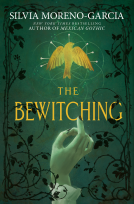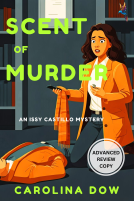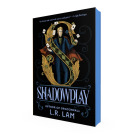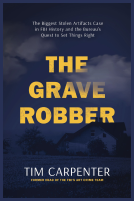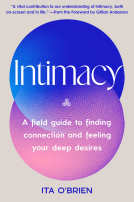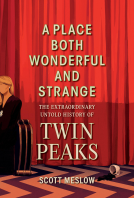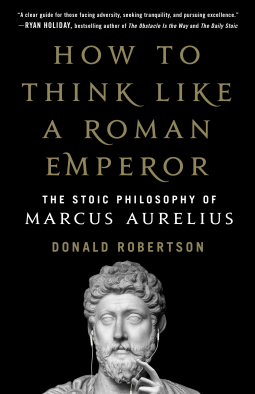
How to Think Like a Roman Emperor
The Stoic Philosophy of Marcus Aurelius
by Donald J. Robertson
This title was previously available on NetGalley and is now archived.
Send NetGalley books directly to your Kindle or Kindle app
1
To read on a Kindle or Kindle app, please add kindle@netgalley.com as an approved email address to receive files in your Amazon account. Click here for step-by-step instructions.
2
Also find your Kindle email address within your Amazon account, and enter it here.
Pub Date Apr 02 2019 | Archive Date Dec 31 2020
Description
"This book is a wonderful introduction to one of history's greatest figures: Marcus Aurelius. His life and this book are a clear guide for those facing adversity, seeking tranquility and pursuing excellence." —Ryan Holiday, bestselling author of The Obstacle is the Way and The Daily Stoic
The life-changing principles of Stoicism taught through the story of its most famous proponent.
Roman emperor Marcus Aurelius was the last famous Stoic philosopher of the ancient world. The Meditations, his personal journal, survives to this day as one of the most loved self-help and spiritual classics of all time. In How to Think Like a Roman Emperor, cognitive psychotherapist Donald Robertson weaves the life and philosophy of Marcus Aurelius together seamlessly to provide a compelling modern-day guide to the Stoic wisdom followed by countless individuals throughout the centuries as a path to achieving greater fulfillment and emotional resilience.
How to Think Like a Roman Emperor takes readers on a transformative journey along with Marcus, following his progress from a young noble at the court of Hadrian—taken under the wing of some of the finest philosophers of his day—through to his reign as emperor of Rome at the height of its power. Robertson shows how Marcus used philosophical doctrines and therapeutic practices to build emotional resilience and endure tremendous adversity, and guides readers through applying the same methods to their own lives.
Combining remarkable stories from Marcus’s life with insights from modern psychology and the enduring wisdom of his philosophy, How to Think Like a Roman Emperor puts a human face on Stoicism and offers a timeless and essential guide to handling the ethical and psychological challenges we face today.
Available Editions
| EDITION | Other Format |
| ISBN | 9781250196620 |
| PRICE | $32.00 (USD) |
| PAGES | 304 |
Average rating from 12 members
Featured Reviews
 Susan A, Educator
Susan A, Educator
I was lucky to get a free copy via NetGalley for my true and honest opinion.
I really enjoyed this book! I absolutely loved reading Marcus Aurelius book the Meditation. In How to Think Like a Roman Emperor, cognitive psychotherapist Donald Robertson weaves the life and philosophy of Marcus Aurelius together seamlessly to provide a compelling modern-day guide to the Stoic wisdom followed by countless individuals throughout the centuries as a path to achieving greater fulfillment and emotional resilience
Obviously, I would love this book. I definitely recommend it for all those who love philosophy or want to learn more about stoicism or Marcus Aurelius.
⭐️⭐️⭐️⭐️
I liked this book a lot, mostly because of the comparison between stoicism and the cognitive behavioral therapy. I am a long time fan of Marco Aurelio, even before the movie "Gladiator" or the book of Marguerite Yourcenar made him a well known Emperor between all the others, but I still think he was one of the best and Everybody should read his Meditations.
Questo libro mi é piaciuto molto, fondamentalmente grazie ai paragoni che l'autore faceva costantemente trai principi stoici e quelli che regolano la terapia cognitivo comportamentale. Inoltre sono da molto molto tempo una grande fan di Marco Aurelio, prima che ascendesse agli onori della cronaca per via del film "Il gladiatore" o il libro della Yourcenar (Le memorie di Adriano): Lo ritengo uno dei principali imperatori romani, specialmente se paragonato alla maggior parte di loro e penso che sarebbe molto importante che ognuno di noi leggesse le "Meditazioni".
THANKS NETGALLEY FOR THE PREVIEW!
 Educator 23289
Educator 23289
This is a great attempt in explaining the circumstances that may have formed or at least refined one of the most influential Stoic and his legacy. Written partly in the format of a biography, each chapter provides a good mix of history, interpretations, similarities to modern-day psychological methods, and a few practical hints on how to potentially incorporate them in one's daily life. Thankfully, this is not a typical self-help book nor an attempt to Mcdolanize Stoicism (there is an industry that is focused on mindfulness to do that!)... Nor is this too focused on biography or historical details that would interest a history buff. That good blend sustains the reader throughout the book, despite some repetitions when it comes to the actual techniques itself (for example the notions of cognitive distancing and functional analyses come up very often almost in the same context). One also gets to obtain an overview of the progression of various Greco=Roman schools of philosophy. Overall, this is the best book that has helped me develop a good understanding how Marcus may have become the Stoic he is respected as and a much more deeper appreciations of "Meditations'.
 Heather U, Reviewer
Heather U, Reviewer
I really enjoyed this one! It was well written and very easy for someone who isn’t working towards a PhD or some type of degree. I enjoy reading about all Things Roman, most especially the Emperor world. Having the philosophical attitude, mindset towards our mortality does allow you to feel more “free”,
I would recommend this book to anyone who would like to learn more about Rome, emperor’s and even simple philosophy.
 Librarian 431790
Librarian 431790
A fascinating and interesting book about a fascinating and interesting character, Marcus Aurelius.
It's great to see how we can apply now his philosophy and how his philosophy can still be modern and applied to our current lifestyle.
Highly recommended!
Many thanks to St. Martin's Press and Netgalley for this ARC
Donald Robertson has written a truly fascinating book that is easy to read and enjoyable. I would recommend this book to others.
What drew me to this initially, besides it being about Marcus Aurelius and Stoicism, is the fact that Ryan Holiday recommended it. I have read everything he's written, and know he is a trusted source when it comes to Stoicism as a life philosophy.
Mr. Robertson discusses Stoicism in terms of CBT, which is an intriguing premise. This book appears to be well researched, and is well written. It's also easy for any lay person to pick up, as it's not full of "$10 words".
I believe anyone interested in expanding their horizons would enjoy this book.
 Ionia F, Reviewer
Ionia F, Reviewer
personal, and yet not overly personal, very well researched and concise, without being overly wordy or providing so much background history that you get lost in the dregs. This is a thoughtful book that will encourage you to look at a figure from the past in a new light and see which of his lessons you might wish to apply to your own life.
I read this book over a couple of days and found within it many parts that were worth highlighting to come back and read again. if you are interested in philosophy, particularly Stoic philosophy, then you will probably enjoy this book. Even if you aren't there are some good lessons here that we should perhaps all apply to our lives to make them better and more fruitful.
I enjoyed it.
This review is based on a complimentary copy from the publisher, provided through Netgalley. All opinions are my own.
Readers who liked this book also liked:
Scott Meslow
Arts & Photography, Biographies & Memoirs, Nonfiction (Adult)






